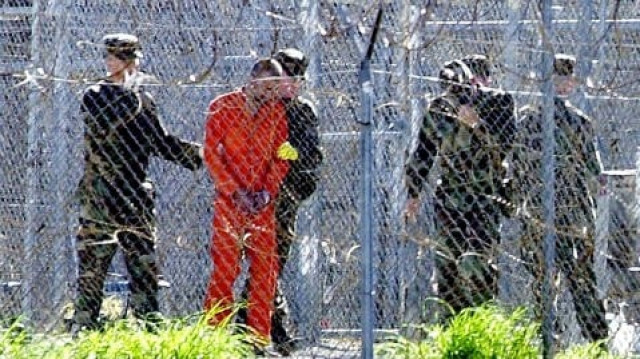Britain outlines secret service torture probe
Britain unveiled details of an inquiry into claims its agencies were complicit in the torture of suspected extremists.

Britain outlines secret service torture probe
Prime Minister David Cameron told the House of Commons that the probe, to be led by retired judge Sir Peter Gibson, was expected to start before the end of the year and should report within 12 months.
He also announced plans to look again at how British courts handled intelligence and admitted that relations with the United States had been "strained" over the disclosure of secret information.
In February, a British court ordered publication of previously classified details about US interrogators' treatment of British resident Binyam Mohamed, a former Guantanamo Bay detainee, to the White House's dismay.
"While there is no evidence that any British officer was directly engaged in torture in the aftermath of 9/11, there are questions over the degree to which British officers were working with foreign security services who were treating detainees in ways they should not have done," Cameron said. "The longer these questions remain unanswered, the bigger the stain on our reputation as a country that believes in freedom, fairness and human rights grows."
New proposals would be brought forward next year on the handling of intelligence in court cases, "including addressing the concerns of our allies", Cameron added. He also released for the first time guidance for intelligence and military personnel on how to deal with detainees held by other countries. This includes a stipulation that British agents "must never take any action where they know or believe that torture will occur." Cameron also indicated that compensation could be offered to people who have brought civil court actions over their treatment at Guantanamo.
The probe would only start once court cases involving claims of British agents' complicity in torture had been concluded. Britain insists it does not participate in, encourage or support the use of torture but around 12 such cases have been brought, including allegations that agents witnessed mistreatment involving hooding and shackling.
Deputy Prime Minister Nick Clegg insisted the inquiry would not be a "witch hunt." "It is really there to make sure we know whether we have upheld the highest standards possible in the difficult work the security services do," he told Channel 4 television news.
The probe would not be entirely in public due to the secret nature of intelligence information involved, Cameron said, although some hearings would be open. News of the investigation was welcomed by campaign group Reprieve, which has represented Mohamed, but they said to hold it in private would be "misguided and wrong."
"This creeping secrecy... must be stopped if we are to rebuild trust in our government and our reputation overseas," said executive director Clive Stafford Smith. Mohamed's is the most prominent case of alleged complicity by British agents in torture by agents from other countries. The Ethiopian-born man, who spent time in Afghanistan in 2001 before being detained in Pakistan the following year, says he was interrogated there by an officer from security service MI5 whose role was to support US interrogators. Mohamed was later transferred to Morocco, where he alleges he was tortured by local officers who asked him questions supplied by British agents. He has described the alleged torture as "medieval." He was later imprisoned in Guantanamo Bay for more than four years before being released last year.
Cameron's coalition government, which took power in May, had already indicated it wanted to hold the inquiry, but his statement outlined how it would work for the first time.



















COMMENTS
Comments are moderated and generally will be posted if they are on-topic and not abusive.
For more information, please see our Comments FAQ